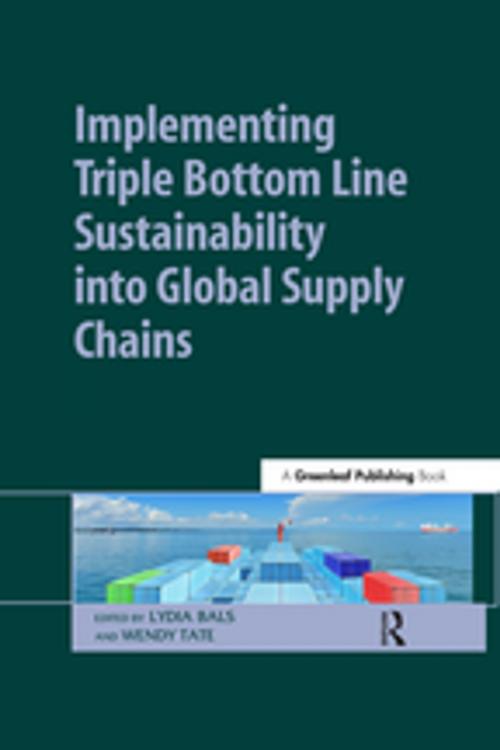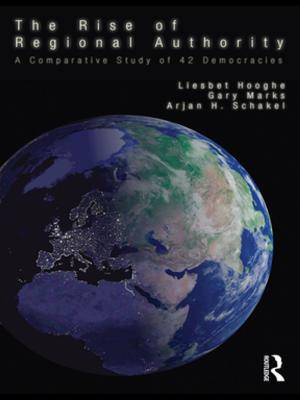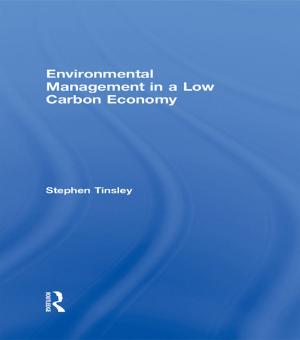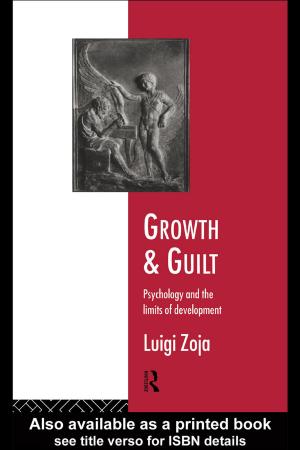Implementing Triple Bottom Line Sustainability into Global Supply Chains
Business & Finance, Business Reference, Business Ethics, Management & Leadership, Planning & Forecasting| Author: | ISBN: | 9781351285100 | |
| Publisher: | Taylor and Francis | Publication: | September 8, 2017 |
| Imprint: | Routledge | Language: | English |
| Author: | |
| ISBN: | 9781351285100 |
| Publisher: | Taylor and Francis |
| Publication: | September 8, 2017 |
| Imprint: | Routledge |
| Language: | English |
The global sustainability challenge is urgent, tremendous and increasing. From an ecological perspective, the current worldwide resource footprint requires approximately 1.5 planets to sustain existing life, and with current usage would require two planets by 2030. The social impact of ever-growing resource use disproportionately affects the world’s poor – the 3 billion people living on less than $2.50 a day, as they struggle to acquire what is needed to survive. The serious ecological and social challenges we face in trying to establish global sustainable supply chains must not be underestimated, yet so far research has largely ignored the social dimension in favour of the environmental and economic.
So how can we develop business strategies that move away from a primary economic focus and give equal weight to people, planet and profit? How can we create sustainable supply chains that take a true triple-bottom-line approach?Implementing Triple Bottom Line Sustainability into Global Supply Chains features innovative research, highlighting new cases, approaches and concepts in how to successfully implement sustainability – covering economic, ecological and social dimensions – into global supply chains. The four parts cover the rationale for sustainable global supply chains, key enablers, case studies showing clear implementation steps, and directions for future research and development.This book is a must-read for any academic researching in sustainable supply chain management, procurement or business strategy, and for business leaders seeking cases that will inform a critical step forward for CSR programmes.
The global sustainability challenge is urgent, tremendous and increasing. From an ecological perspective, the current worldwide resource footprint requires approximately 1.5 planets to sustain existing life, and with current usage would require two planets by 2030. The social impact of ever-growing resource use disproportionately affects the world’s poor – the 3 billion people living on less than $2.50 a day, as they struggle to acquire what is needed to survive. The serious ecological and social challenges we face in trying to establish global sustainable supply chains must not be underestimated, yet so far research has largely ignored the social dimension in favour of the environmental and economic.
So how can we develop business strategies that move away from a primary economic focus and give equal weight to people, planet and profit? How can we create sustainable supply chains that take a true triple-bottom-line approach?Implementing Triple Bottom Line Sustainability into Global Supply Chains features innovative research, highlighting new cases, approaches and concepts in how to successfully implement sustainability – covering economic, ecological and social dimensions – into global supply chains. The four parts cover the rationale for sustainable global supply chains, key enablers, case studies showing clear implementation steps, and directions for future research and development.This book is a must-read for any academic researching in sustainable supply chain management, procurement or business strategy, and for business leaders seeking cases that will inform a critical step forward for CSR programmes.















